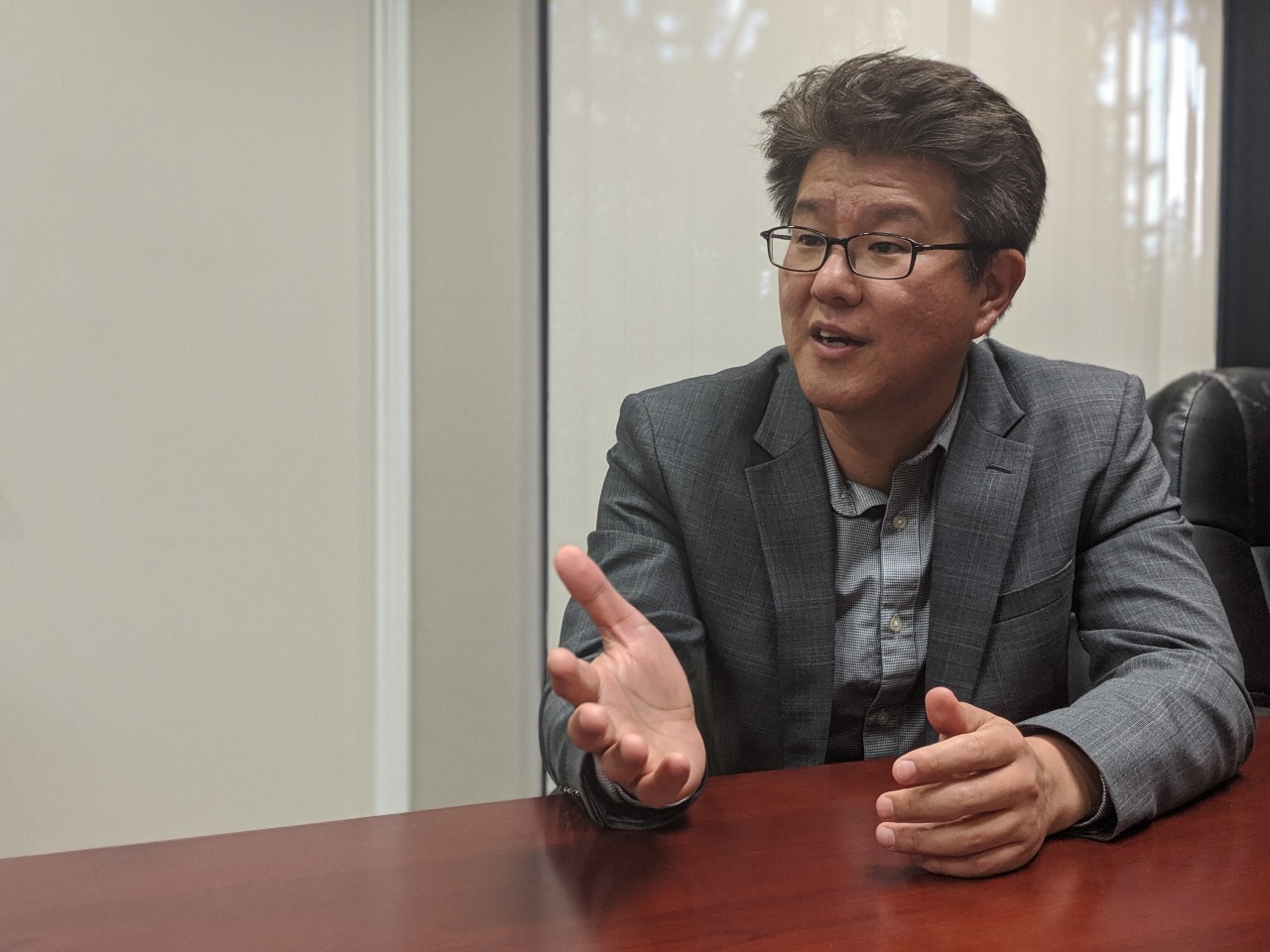SAN JOSE, California -- Many South Korean entrepreneurs with top-notch capabilities in the field of artificial intelligence should prepare themselves for Silicon Valley, California, home to many disruptive unicorn startups and global technology firms, said an official of state-run Korea Trade-Investment Promotion Agency (Kotra) last week.
It is not enough for startups with outstanding technologies to only have exceptional talent, they also need networking skills to attract investments from venture capitalists. Silicon Valley, which is the global center for high technology, innovation and social media network is a crucial element for the success of startups, said Lee Young-ki, acting managing director of Kotra Silicon Valley.
“Venture capitalists here look at (nationalities of) foreign startups’ members when they consider investing in them. If it’s a startup led by a Korean leader, its co-founding team needs to include at least one Korean American and US national to be more appealing to local VCs,” he said in an interview with The Korea Herald on Wednesday.
“They prioritize their social networking skills as they examine how the co-founders collaborate with each other and engage with outsiders in terms of making an investment decision,” he said.
 |
Lee Young-ki, acting managing director of Kotra Silicon Valley, speaks during an interview in his office in San Jose, California, on Wednesday. (Kotra Silicon Valley) |
Kotra’s Silicon Valley office supports operations of small and medium-sized Korean businesses in the region seeking investments.
He urged Korean tech firms with top AI capabilities to boldly compete in the fierce battlefield for the world’s leading innovations.
“Silicon Valley is definitely a place that leads the future, in which the top brains from all over the world are in a cut-throat competition,” Lee said. “Those from China, Israel, Germany and France are excelling, and I hope to see more Korean startups do so.”
Regarding the ongoing trade war between the US and China and its ripple effects on the region, including a looming contraction in the VC investment market, Lee said Silicon Valley will overcome the issue and grow further in terms of quality with outstanding players, especially from China.
“We need to look carefully at new approaches by Chinese players to overcome the current difficulty,” he said.
According to Kotra, there are about 200 startups with technologies ranging from AI, mobile apps to autonomous driving established in the region by Koreans including long-time students there and Korean Americans who were born in the country.
Unicorns are born when the four elements of technology, talent, capital and network are well blended together. And Silicon Valley has it all.
“I believe there are many competitive AI firms in Pangyo and Gasan in Korea,” Lee said. “We need to dig into the Silicon Valley ecosystem as a state mission and let them come and learn.”
By Song Su-hyun
Korea Herald correspondent
(
song@heraldcorp.com)




![[Today’s K-pop] Blackpink’s Jennie, Lisa invited to Coachella as solo acts](http://res.heraldm.com/phpwas/restmb_idxmake.php?idx=644&simg=/content/image/2024/11/21/20241121050099_0.jpg)



